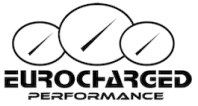Results 1 to 6 of 6
-
01-15-2022, 11:59 AM #1
 Member
Member

- Join Date
- Jan 2022
- Posts
- 2
- Rep Points
- 1.1
- Mentioned
- 0 Post(s)
- Rep Power
- 0
 Adding Forced Air Induction on the Cheap: Boost Limits With Stock Components
Adding Forced Air Induction on the Cheap: Boost Limits With Stock Components
Hello All,
I recently picked up an Eaton M90 supercharger. I’d like to bolt this onto my ‘03 Dodge Dakota with a stock 4.7l V8.
I’ve seen these in use before on this engine, so know that it can be done. So my question is aside from any fitment challenges such as adapter plate, pulley changes, belts required, etc. I’m assuming that everything will connect and bolt on at the end of the day.
My questions are:
1. Is it possible to add forced air to an engine with absolutely no physical component changes (other than bolting on the blower and routing belts), and with no tuning changes?
2. If #1 above is true, then what is the boost limit and how would it be calculated?
The minimum goal I would be satisfied with is to bring the engine up to stock HP and torque at elevation. I live at 8800 feet, and the vehicle struggles with towing even half its rated capacity. The performance is acceptable at sea level. Ideally, the goal would be to increase lower RPM torque and maximum torque and maximum HP, but that is not a requirement for this project to be successful to me.
Adding new injectors, fuel pump, new tuning, etc are all possibilities later but I’d like to see what’s possible with a stock setup. I have moderate mechanical skills, so this install wouldn’t be beyond my capabilities.
Thanks in advance…
-
02-09-2022, 10:46 PM #2
It will definitely need to be tuned to run properly. AFR’s will be all screwed up and ignition timing will be too advanced to run boost safely on the stock map.
-
02-10-2022, 11:21 AM #3
You HAVE to tune, and will need more fuel to compensate for the extra air. Your injectors could potentially have enough head room to not need to be replaced but who knows.
That's how this whole extra power thing works. More air + more fuel = more power.2007 Jet Black E90 335xi "The Mistress" / RB Next Gens / RB EVO Intake / E50 / FuelitS2 / 5" Stepped FMIC / VRSF DPs / Synapse BOV and Charge Pipe / Alpina Flash / Muffler Delete w/ 4in Black Tips / DCI / 19x8.5 Satin Black Squared Enkei Raijins / 245/35/r19 Bridgestone Potenza S04 Pole Position / 20mm Rear Spacers / 2 10" Rockford Fosgate's Added to Logic7 (15 total speakers!)
-
02-11-2022, 11:30 AM #4
 Member
Member

- Join Date
- Jan 2022
- Posts
- 2
- Rep Points
- 1.1
- Mentioned
- 0 Post(s)
- Rep Power
- 0
Thanks for the replies. I’d like to clarify and pose this a different way:
The atmospheric pressure at sea level is 14.7 PSI.
At 8,700 feet in elevation (where I live), it is 10.7.
mide.com/air-pressure-at-altitude-calculator
Because of this, naturally aspirated engines lose about 3% rated horsepower for every 1000 feet rise in elevation.
For an engine that produces 235 horsepower (my truck), at 8700 feet it will lose about 61HP resulting in 171HP.
wallaceracing.com/braking-hp.php
If my goal is to simply make up for the loss in air concentration between stock at sea level and my higher elevation by adding 4 PSI of compression, why would this require?
- Greater than stock fuel flow
- A change in tuning
The goal is to return the vehicle’s performance at sea level, and the theory is that this could be accomplished with a blower set to adjust the PSI at 8,500 feet in elevation to the naturally aspirated air pressure at sea level, and this would be ~4 PSI.Last edited by staticGenerator; 02-11-2022 at 11:36 AM. Reason: Updated incorrect elevation
-
02-22-2022, 05:47 PM #5
 Member
Member

- Join Date
- Oct 2013
- Posts
- 2
- Rep Points
- 2.2
- Mentioned
- 0 Post(s)
- Rep Power
- 0
I am curious as what limits on 991 GT3 stock internals are... There's a company that started procharging the 4.0RS engine and apparently no real weaknesses found so far.
-
02-22-2022, 07:30 PM #6
 Member
Member









- Join Date
- Dec 2009
- Posts
- 3,328
- Rep Points
- 2,224.4
- Mentioned
- 16 Post(s)
- Rep Power
- 23




 Quote
Quote












Hey...
We welcome terahertz5k